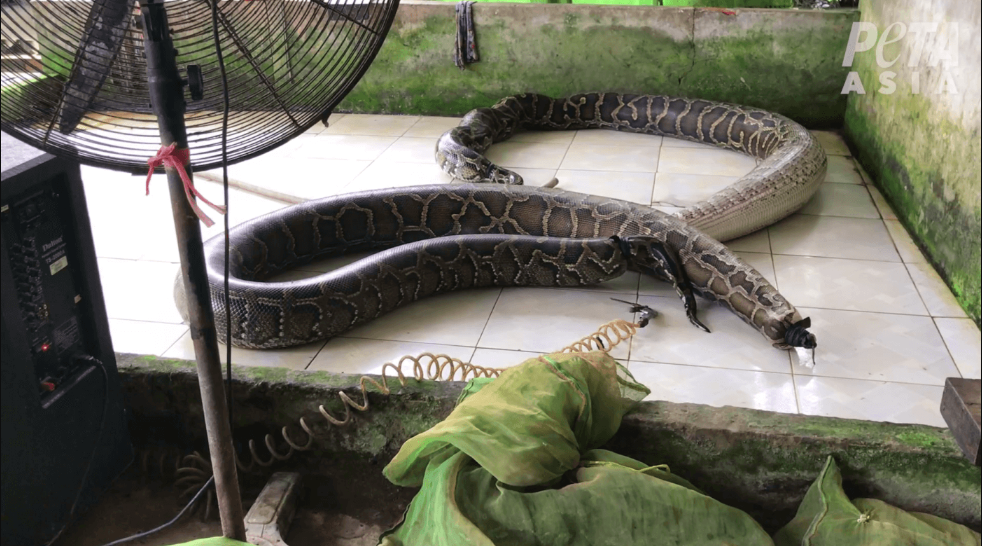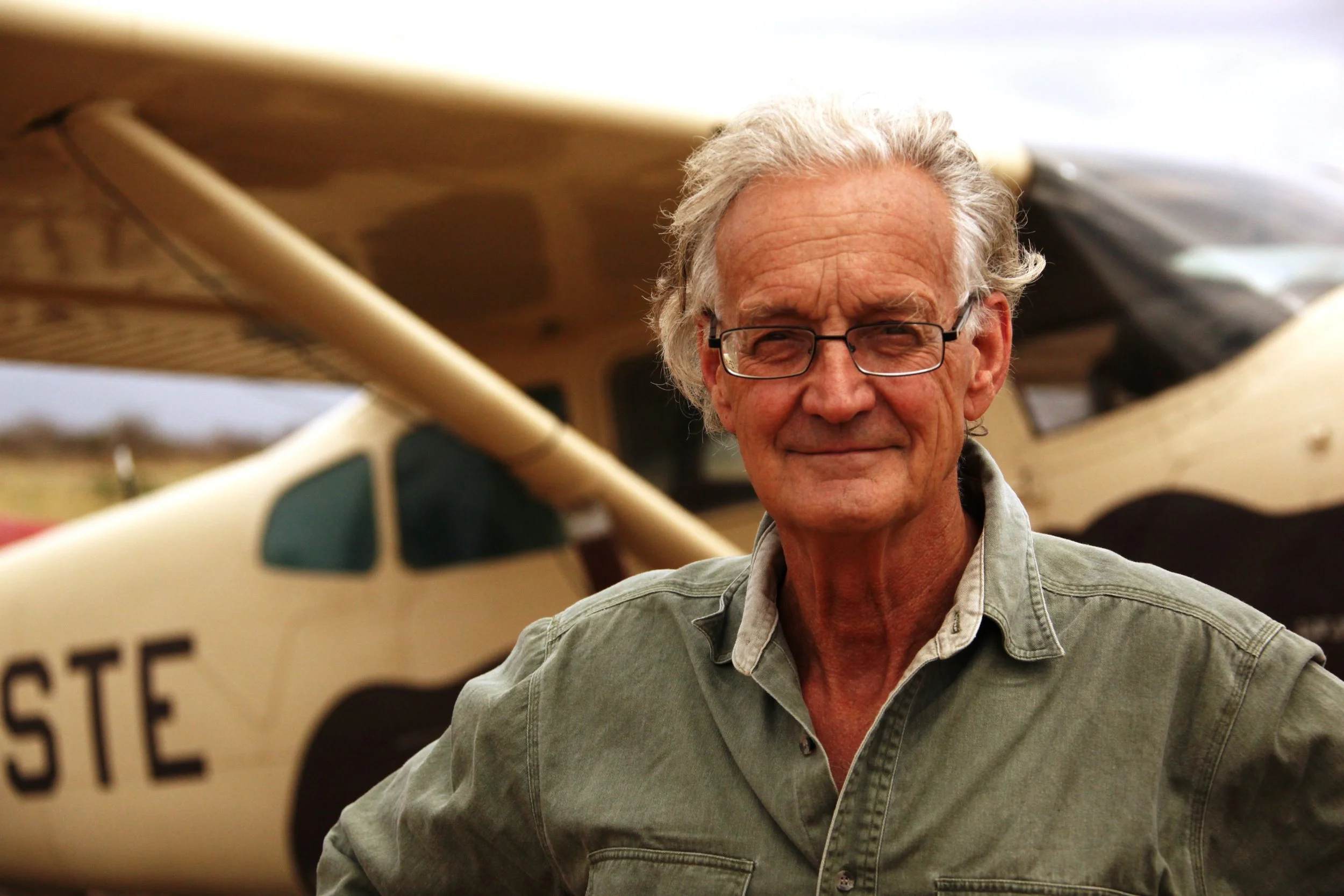Snakes Inflated to Death To Make ‘Luxury’ Snakeskin Items
An undercover investigation into the leather trade reveals how snakes are bound with rubber bands, before being inflated to death with an air compressor.
Credit: PETA
Snakes are being inflated to death so that their skins can be used to produce ‘luxury’ items, an undercover investigation has revealed.
In footage taken at a farm in Vietnam that supplies snakeskin for use in the global leather trade, snakes can be seen with their mouths and anuses sealed with rubber bands, before they are inflated to death with an air compressor.
Credit: PETA
The slaughter process is said to crush the snake’s heart and cause the animals severe pain, according to People for the Ethical Treatment of Animals Asia (PETA Asia), who conducted the investigation. The footage also shows a snake’s tail moving during the inflation, indicating that the pythons may still be alive as workers tear their skin off and disembowel them.
“Rather than exploring lush jungles and swamps and experiencing all the sensory pleasures that they’re so keenly attuned to, snakes used for their skin are kept in filthy cages, blown up like balloons, and even skinned alive,” says PETA Asia Senior Vice President Jason Baker. “PETA Asia is urging everyone to reject this horrific cruelty by refusing to purchase any items made out of exotic skins.”
Many leading retailers, designers, and brands have already banned exotic skins from their collections, including the likes of Chanel, Nordstrom, Calvin Klein, Tommy Hilfiger, Hugo Boss, and Diane von Furstenberg.
However, exotic skin items like snakeskin shoes and python purses are still sold by brands like Louis Vuitton. And luxury French brand Hermès recently outraged animal welfarists and wildlife campaigners after it announced plans to build Australia’s largest crocodile farm, to use their skins in future collections.
More stories:
Species Unite
A collection of stories of those who fight the good fight on behalf of animals.





A new UN report uncovers a staggering truth: the two unsustainably managed industries are causing costly harm to the planet.